'Fake pills' leave several seriously ill in Swansea hospital
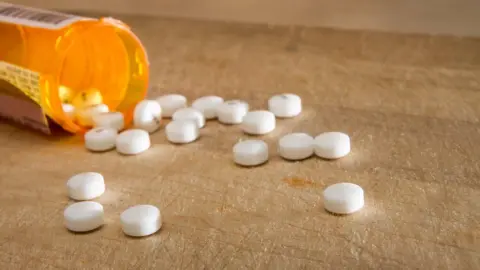 Getty Images
Getty ImagesFake prescription anti-anxiety pills are thought to have left several people seriously ill in hospital.
Swansea Bay health board said they were taken to Morriston Hospital after overdosing on Wednesday.
It said it believed the tablets were being sold illegally as Valium and Xanax in Swansea and Neath Port Talbot.
South Wales Police said it was contacted by the health board on Wednesday evening and was carrying out an extensive investigation.
It comes as a report warned of the number of fake pills being seen by health experts.
Allow Facebook content?

Public Health Wales' drugs testing lab said it had seen a "substantial increase" in pills being sent for analysis by people concerned about their authenticity.
The most common were benzodiazepines, a group of anti-anxiety pills which includes diazepam and Xanax.
Josie Smith, PHW's head of substance misuse, said the issue had likely got worse due to Covid and lockdowns.
"These drugs may not be regulated in the UK and they will differ in strength and in the speed at which the effects are felt... so there's a very real risk of accident, as sadly we're hearing today," she told Claire Summers on BBC Radio Wales.
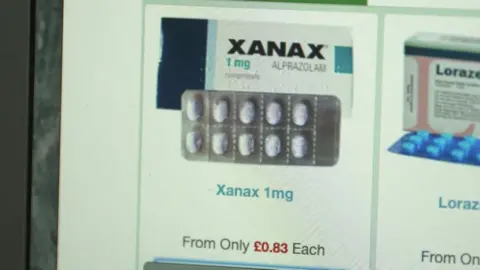
More than half of the pills tested were found to be fakes, often containing stronger, unregulated chemicals.
Ms Smith said: "Given the stresses, strains and pressures that people have been under in the past year, they may have been more inclined to self-medicate with medicines not prescribed to them.
"We are more frequently now hearing from individuals saying that they didn't wish to go to their GP to talk about the challenges they were experiencing and found it easier to go online."
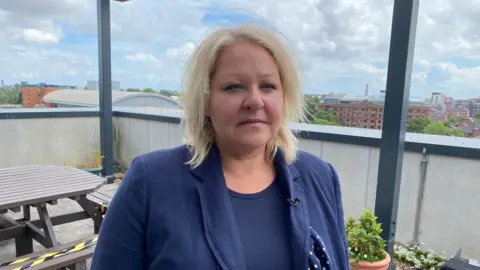
She added there was anecdotal evidence of an increase of the use anti-anxiety and anti-depression drugs during the Covid pandemic.
Fake pills are often made using cheaper ingredients, which can be up to 10 times stronger than what people think they are taking, potentially leading to longer-lasting side effects and long-term addiction or overdose.
Many closely resemble genuine pharmaceuticals, with blister packs and accompanying medical information leaflets.
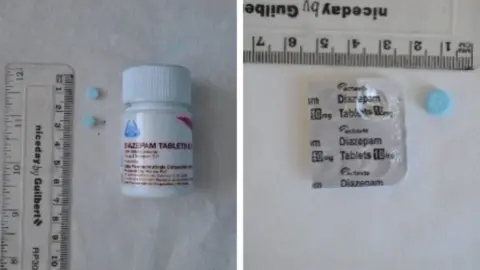 Public Health Wales
Public Health Wales The Welsh Emerging Drugs and Identification of Novel Substances (Wedinos) project, which analyses drug samples sent in from across the UK, saw a 40% increase in the number of benzodiazepine samples, up from 846 in 2019-20 to 1,205 in 2020-21.
Diazepam and Xanax were the most common pills people believed they were buying.
Ms Smith said some people may worry about the stigma of seeking medication, but urged them to go to their GPs.
She said: "We know that the age range for this is enormous.
"The youngest person submitting a sample was 14 and the oldest was 89, so this is right across the age groups. This isn't exclusively a young person's issue or an older person's issue."
Out of 320 samples submitted in the past year where people believed they had bought Xanax, 58% were found to contain a different substance entirely.
Out of 712 diazepam samples, 55% were found to be something else, with many consisting of significantly more potent chemicals that have never been regulated for medical use.
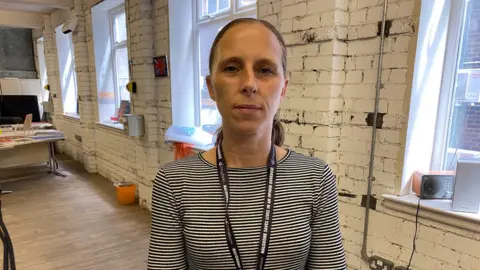
As well as a suspected increase in online sales, some drug support services said they had seen a marked increase in so-called street benzodiazepines, often bought and sold among those with existing addiction issues.
Kimberley Williams, who has used benzodiazepines in the past but is now in recovery, said the streets were "flooded" with fake medication.
"Obviously people are coming out of lockdown, their mental health isn't good, and these are people that don't go to the doctors to get their medication, so they're seeking something to make themselves feel better.
"It's so much more powerful. It's highly addictive anyway, but I'm seeing it ruining people lives faster than crack and heroin - and that says a lot."
Elwyn Thomas, an outreach worker at the Kaleidoscope drug support service in Newport, said he had noticed big changes in benzodiazepine use for those already struggling with addictions.
"We've had probably 16 or 17 drug related-deaths in the first three months of this year which related to fake benzodiazepines," he said.
"On the streets we're seeing chaos. As a front line drug worker I've seen the use of benzodiazepines changing over the past 17 months.
"The difference now is the types and strength of benzodiazepines that are out there on the street."
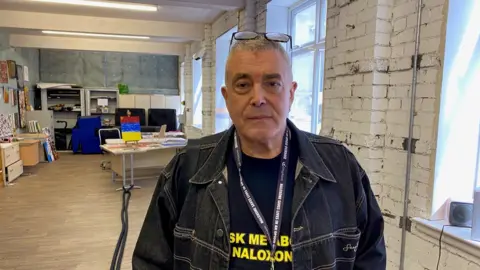
Simon Jones, head of policy at Mind Cymru, said it was concerning to see people attempting to order medications online to help with mental health problems.
He said: "This can be very dangerous, as there is no guarantee that people know exactly what is in the medication.
"Our advice is that if you think you're experiencing symptoms of a mental health problem, like anxiety, it's important to see your GP, who can talk you through a range of treatment options including a prescription if you both feel you could benefit from one."
British Medical Association Wales council chairman Dr David Bailey said it was "hugely concerning" to hear of people buying prescription-only medication without a proper medical assessment.
He said: "No online portal - even from a reputable pharmacy company - will have access to a patient's medical history and if medication is obtained from any other source there can be no guarantee about either the suitability of the medication or if it is genuine."
